Cover Story
Aquanow and the Future of Digital Finance: A Story of Infrastructure and Innovation

From a Canadian startup to a key player in the global financial evolution
Bridging Two Worlds
While many were retreating from crypto in 2018, three friends with deep roots in capital markets saw something others missed: the foundations of a new financial system taking shape. They founded Aquanow with a bold vision—to build the infrastructure connecting traditional markets with the digital asset frontier.
“Before Aquanow, I was trading equities, focused on the intersection of technology and markets,” says CEO Phil Sham. “We saw early that crypto wasn’t a fad—it was a new asset class where the best parts of finance could be reimagined.”
What sets Aquanow apart is the team’s ability to empathise with clients. “Coming from traditional finance gave us a unique perspective,” explains Sham. “We understood the stringent requirements financial institutions face—from regulatory compliance to risk management. But we were also immersed in blockchain’s innovative potential. This dual expertise allowed us to build bridges between these worlds in a way that pure crypto natives or traditional finance veterans couldn’t achieve alone.”
From Liquidity Provider to Global Infrastructure
Fast forward to 2025, and Aquanow has transformed into a leading financial infrastructure provider with over 120 employees, powering digital asset services for over 300 institutional clients across 50 countries and processing billions in monthly volume.
Today, the company’s comprehensive service offerings are comprised of four essential building blocks:
- Trade: Advanced trading infrastructure with deep liquidity pools and low-latency execution
- Pay: Solutions that allow businesses to accept and process digital asset payments
- Send: Secure and efficient cryptocurrency transfers across platforms and regions
- Hold: Institutional-grade custody services ensuring maximum security and compliance
This evolution has positioned Aquanow at the center of institutional crypto adoption—particularly in regions embracing digital asset innovation, like the Middle East.
A Foundation of Trust
“When a bank with millions of customers decides to offer crypto services, they’re essentially extending their trust to us,” explains Sham. “We take that responsibility incredibly seriously. Our systems are designed with multiple layers of redundancy, sophisticated security protocols, and rigorous testing methodologies familiar to any enterprise IT department.”
Aquanow’s technology stack features advanced encryption, real-time monitoring systems, and advanced anomaly detection capabilities. The company maintains 99.99% uptime across its core services, with automated failover mechanisms that detect and respond to potential disruptions before they impact end users.
“Compliance isn’t an afterthought for us—it’s built into our DNA,” Sham emphasizes. “From day one, we’ve designed our systems with regulatory requirements in mind, working closely with authorities across multiple jurisdictions to ensure our infrastructure meets or exceeds their standards.”
This proactive approach has been particularly valuable in the Middle East, where authorities are crafting thoughtful frameworks to govern digital assets. Aquanow maintains a dedicated compliance team that continuously monitors regulatory developments worldwide, embedding controls directly into its infrastructure—from robust KYC/AML procedures to real-time transaction monitoring.
The UAE: A Strategic Focus for Growth
Among Aquanow’s global expansion efforts, the United Arab Emirates and wider MENA region have emerged as a particular focus. The region’s progressive regulatory environment and growing interest in digital assets have created fertile ground for innovation.
“Around six years ago, we started expanding internationally, targeting markets with regulatory clarity and strong consumer demand. The UAE checked both boxes,” Sham notes. “I came here about four years ago to begin the licensing process, and since then, we’ve made significant progress.”
That progress culminated in February 2024 when Aquanow received a comprehensive Virtual Asset Service Provider (VASP) license from Dubai’s Virtual Assets Regulatory Authority (VARA)—one of the most extensive awarded to a VASP in Dubai to date.
“Dubai’s Virtual Assets Regulatory Authority has played a significant role,” Sham explains. “They’ve proactively created a responsible oversight framework that allows innovative crypto concepts to become a reality. That clarity and openness have made it easier for companies like ours to build here.”
Powering Emirates NBD’s Crypto Journey
Perhaps the clearest sign of Aquanow’s growing influence is its landmark partnership with Emirates NBD, one of the Middle East’s largest banking groups with approximately $271 billion in assets.
Announced in early 2025, the collaboration enables Emirates NBD’s digital bank, Liv, to offer cryptocurrency trading through its Liv X mobile app—bringing digital asset access to a broad retail audience via a trusted banking platform.
“This partnership enables millions of users to buy and sell crypto like they access other financial services,” says Sham. “With that infrastructure in place, we can start layering on more services—tokenization, payments, cross-border transfers—all the things that blockchain promises but requires a solid foundation to deliver.”
What makes this collaboration particularly significant is Emirates NBD’s century-long history of serving customers in the region. The bank has spent decades building trust with its client base—trust that it’s now extending to digital assets through Aquanow’s infrastructure.
“When we partner with institutions like Emirates NBD, we recognize that they’re entrusting us with relationships they’ve cultivated over generations,” explains Sham. “That’s a profound responsibility. Our infrastructure has to be absolutely bulletproof, because we’re not just supporting a new product—we’re supporting the bank’s reputation and the trust their customers place in them.”
Enabling Crypto Payments in the UAE
While trading is often the first step for institutions entering the digital asset space, Aquanow’s work increasingly focuses on other sources of utility. In February 2025, the company partnered with Hubpay—a leading UAE-based cross-border payments platform—to launch the country’s first fully regulated crypto payment gateway tailored for businesses and SMEs.
The solution enables merchants across industries to accept cryptocurrency alongside traditional fiat, while addressing a major barrier to adoption: volatility.
“Volatility has always been a core concern for businesses considering crypto,” says Sham. “The key is giving them flexibility. Most of our clients aren’t trying to speculate—they want to offer customers the option to pay in digital assets while managing their treasury in fiat.”
Aquanow’s infrastructure supports instant conversion, allowing merchants to settle in either crypto or fiat at the point of transaction. “For example, a real estate developer in Dubai might accept USDC for a property but settle in AED,” Sham explains. “Our job is to remove exchange rate risk and operational friction so businesses can focus on what they do best.”
The Collaboration Ethos
Aquanow operates on the belief that advancing financial services requires close collaboration with existing institutions. The goal is to expand their capabilities while maintaining the trust they’ve built over decades.
“We don’t see ourselves as disrupting traditional finance,” Sham explains. “We see ourselves as enhancing it—providing infrastructure that allows institutions to embrace new technology while staying true to their core values.”
This mindset shapes how Aquanow approaches partnerships. Instead of imposing a one-size-fits-all solution, the team collaborates with each partner to understand their unique needs, constraints, and goals.
“Every institution we work with has its own history, client base, and strategy,” says Sham. “Our role is to provide flexible infrastructure that adapts to their context—not the other way around.”
That same spirit carries through to regulatory engagement. Aquanow works closely with policymakers across jurisdictions, sharing insights to help shape clear, workable frameworks for digital assets, while accounting for regional nuance.
Expanding Access
As Aquanow expands in the Middle East, CEO Phil Sham sees the company’s role as foundational: enabling access, liquidity, and movement across the digital asset economy.
“At its core, crypto is about distribution,” he says. “People need the ability to on-ramp and off-ramp between fiat and crypto. Once that’s solved, everything else—from tokenized assets to borderless payments—becomes possible.”
This vision aligns with the UAE’s ambition to become a global hub for digital finance. Regulatory clarity and rising institutional interest have created a fertile environment—one Aquanow is helping to catalyze.
“Every time a traditional distributor enters the space, they bring thousands—sometimes millions—of users with them,” Sham notes. “That’s where the network effects start. If a fintech in the UAE enables crypto trading and one in the Philippines does the same, we can power remittances between them.”
With large expatriate populations relying on cross-border transfers, the impact is tangible. By reducing cost and complexity, Aquanow’s infrastructure aims to lower friction and expand access to financial services across the region.
The Invisible Infrastructure
As Aquanow continues to expand, the company is guided by a somewhat counterintuitive measure of success: invisibility. The most effective infrastructure, in Aquanow’s view, is infrastructure that users don’t even notice—technology that works so seamlessly that it fades into the background.
“Our ultimate goal is to make the underlying complexity of blockchain technology invisible to end users,” explains Sham. “When someone sends money to family overseas, they shouldn’t need to understand blockchain consensus mechanisms. They should just know that the money arrived instantly, at minimal cost, and with complete security.”
This philosophy shapes how Aquanow designs its solutions. The company focuses relentlessly on user experience, working with its institutional partners to create interfaces that feel familiar and intuitive, even as they leverage the revolutionary capabilities of blockchain technology.
“Traditional fintech wallets and crypto wallets are converging,” Sham observes. “In the future, people won’t need to know they’re using crypto to send money—they’ll just know it works. That’s the direction we’re heading in.”
A Foundation for the Future
Aquanow, once a startup navigating difficult market conditions, has proven its long-term commitment to reshaping financial infrastructure. Through the development of enterprise-grade technology, embedded compliance, and deep institutional collaboration, the company has positioned itself as a key enabler of financial innovation—particularly in markets like the UAE, where trust and transformation go hand in hand.
“The businesses that succeed will be those that move early, build the right partnerships, and stay agile as the regulatory and technological landscape evolves,” says Sham. “We’re proud to provide the infrastructure that makes that possible—secure, compliant systems that let institutions explore digital assets without compromising their core values.”
As the UAE cements its role as a global digital asset hub, Aquanow is helping to turn ambition into execution—bridging the gap between today’s financial system and tomorrow’s possibilities.
Cover Story
Inside Zoho’s UAE Data Centers!
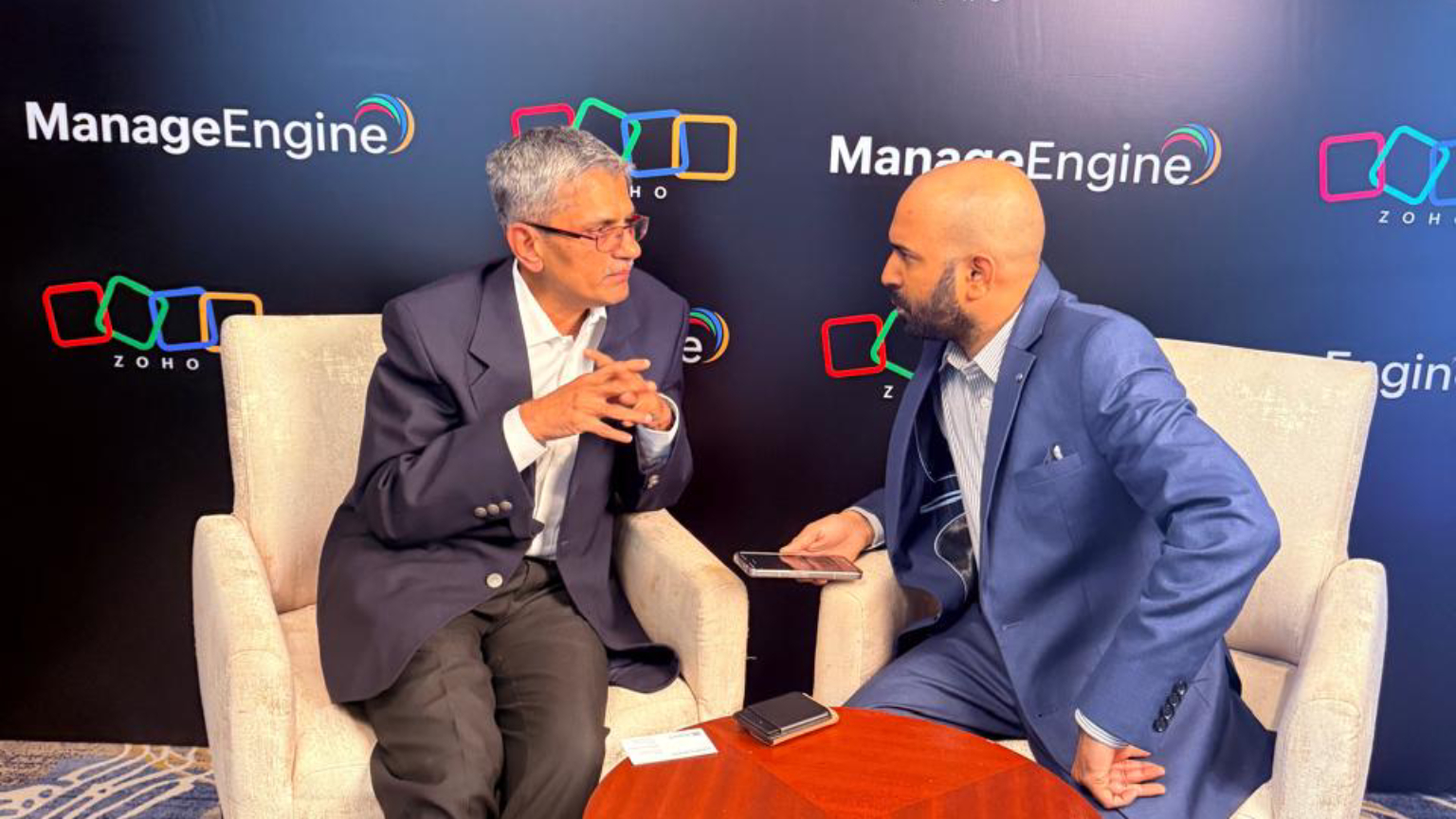
Playing the Long Game in Cloud Infrastructure, Data Centers, Privacy, Cybersecurity, and Growth in the UAE
The Integrator had an interview with Shailesh Davey, Co-founder & CEO, Zoho, during the official launch of their newly opened data centers in the UAE.
Zoho is on an executing path; as they say, it is a disciplined, long-term regional strategy by deploying and right-sizing data centers in Saudi and the UAE, aligning with global trends in data sovereignty and privacy.
The UAE is a priority growth market fueled by regulatory and business-led digitization, supported by local teams and partners. Customers will see faster performance from local hosting, while flagship products Zoho CRM Plus and Zoho Books lead growth, with rapid regulatory feature alignments.
Zoho currently operates more than 18 data centers globally, with the UAE being the latest addition. From a regional perspective, does the Middle East require more data centers, or are the facilities in the UAE and Saudi Arabia sufficient to support Zoho’s growth plans?
We currently operate two data centers in Saudi Arabia, which primarily serve the Saudi market. In the UAE, we have now established two data centers—one in Dubai and another in Abu Dhabi. These facilities have been carefully right-sized based on our expected growth in the region.
We have been present in this market since 2009, so we have a clear understanding of customer adoption patterns, data usage behavior, and growth trajectories. Based on this data, we have ensured sufficient capacity for the next two to four and a half years. Every six months, our teams review capacity utilization and growth rates. If we see demand growing faster than anticipated, we simply expand further.
This approach isn’t new for us—we’ve been doing this consistently since 2006–2007.
Zoho is widely known for its capital discipline and strong stance on privacy. With increasing global rhetoric around cybersecurity, data sovereignty, and regulations—especially in markets like the UAE—do you believe governments are emphasizing certifications due to a trust deficit with large tech companies, or is this part of a broader global shift?
There are a few important factors at play here. First, some of the world’s largest technology companies have built their businesses by monetizing user data. This is openly acknowledged as part of their business model. While it may be legal, it understandably creates discomfort—especially for governments concerned about the data of their citizens, and for individuals who often accept terms and conditions without fully realizing what they are agreeing to.
Second, we are now living in a rapidly evolving geopolitical environment. The shift toward a multipolar world has accelerated significantly over the last couple of years. In this context, it is only practical for governments to introduce regulations that ensure clarity around where data resides, how it is handled, and whether companies are compliant with local laws.
From Zoho’s perspective, this has always aligned with our philosophy. Wherever we set up data centers, we comply fully with local regulations and data sovereignty requirements. Certifications and compliance are simply proof points of that commitment.
Zoho has seen strong growth in the UAE. Which flagship products are driving this momentum, and how does the establishment of local data centers translate into tangible benefits for businesses in terms of innovation and performance?
Let me start with the impact of the data centers. The most immediate and visible benefit is speed. Earlier, customer data was being served from the US, which meant latency due to the physical distance. With local data centers in the UAE, response times are significantly faster. This directly improves user experience, in addition to meeting security and compliance requirements.
In terms of products, our fastest-growing solution in the UAE is Zoho CRM Plus. For any business, sales is a critical function, and CRM Plus is a comprehensive, customer-facing suite that supports sales, marketing, customer support, service, and even project management.
The second major growth driver is Zoho Books, which is widely used by finance and accounting teams. With increasing regulatory requirements around accounting, compliance, and e-invoicing in the UAE, Zoho Books helps businesses stay compliant while maintaining accurate and transparent financial records.
Given the pace at which regulations are evolving, especially in areas like e-invoicing, our local presence allows us to respond very quickly. We see significant long-term potential for both CRM Plus and Zoho Books in this market.
One of Zoho’s recent consumer-focused initiatives Aaratai application has gained strong traction in India and has generated a lot of discussion. Do you see similar B2C-led innovations helping Zoho reach a wider audience in the UAE as well? Could we see such solutions being developed or localized for this market?
This has been an interesting experiment for us. What we’ve essentially done is take the technology we built for the B2B world, adapt it, and make it accessible to B2C users. That’s how this particular app was born, and it received strong tailwinds in the Indian market.
Interestingly, due to the large Indian diaspora in the UAE, adoption naturally extended here as well. Our immediate focus is to ensure that the product is reliable, feature-rich, and delivers long-term value to users.
Once we are confident that the model works at scale, we will look at expanding into other markets where there is strong synergy. Markets with a significant Indian diaspora are a natural starting point, and Europe is high on that list.
Automotive
Goodyear continues support for Team De Rooy in the 2025 Dakar Rally
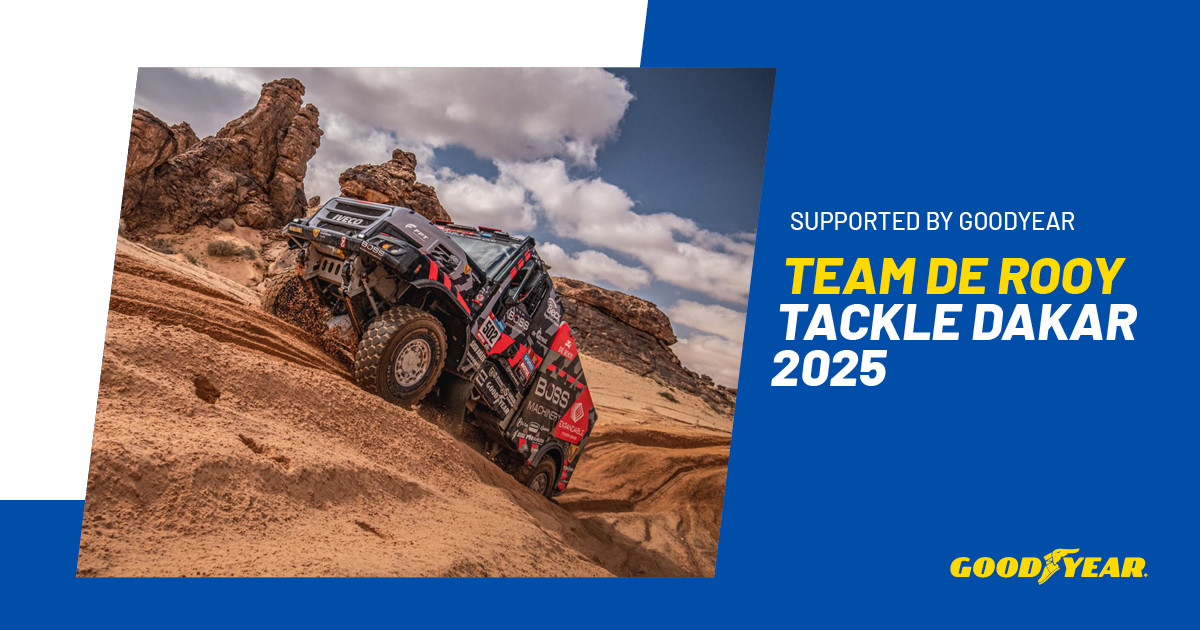
Goodyear continues its partnership with Team De Rooy for the upcoming Dakar Rally 2025. As the official tire supplier, Goodyear will equip the Dutch team with its high-performance Goodyear OFFROAD tires and advanced Tire Pressure Monitoring System (TPMS), helping to ensure reliable performance throughout the rally’s demanding stages. This collaboration highlights Goodyear’s dedication to truck motorsport, combining innovation with proven durability on some of the world’s toughest terrains.
Dakar 2025: new challenges await
The 2025 Dakar Rally, running from January 3 to January 17, will cover nearly 8,000 kilometers, including over 5,000 kilometers of competitive stages, starting in Bisha and finishing in Shubaytah. This edition ramps up the difficulty, featuring an early 48-hour chrono stage that flows into the marathon stage, setting a challenging pace from the outset. In the second week, competitors will tackle the demanding dunes of the Empty Quarter, with over 45% of the course on separate tracks for different vehicle classes, enhancing safety while complicating navigation.
Goodyear OFFROAD tires and TPMS: performance in challenging conditions
Team De Rooy relies on Goodyear OFFROAD tires for their durability and reliable traction across different conditions. Designed to handle heat and challenging surfaces, these tires help reduce heat buildup at high speeds and provide consistent performance on sand, rocks, and steep slopes.
Goodyear’s TPMS offers real-time monitoring of tire pressure and temperature, helping the team make quick adjustments and avoid potential issues. This advanced system helps to minimize downtime and supports better strategic decisions—crucial for maintaining momentum during the rally.
A Legacy of motorsport excellence
Goodyear’s continued support of Team De Rooy highlights its long-standing commitment to truck motorsport. As the title sponsor of the Goodyear FIA European Truck Racing Championship (ETRC), Goodyear uses motorsport as a proving ground for tire technology advancements. The partnership with Team De Rooy reflects this commitment, driving innovation and performance in demanding environments.
Maciej Szymański, Marketing Director Commercial EMEA at Goodyear, commented:
“Our continued collaboration with Team De Rooy for Dakar 2025 underscores our commitment to supporting motorsport teams in extreme conditions. With Goodyear OFFROAD tires and TPMS, we aim to provide the reliability needed to tackle the rally’s challenges. We wish Team De Rooy all the best and look forward to another exciting competition at this iconic rally”.

Cover Story
PLAUD Note Pro: This Tiny AI Recorder Might Be the Smartest Life Upgrade You Make!
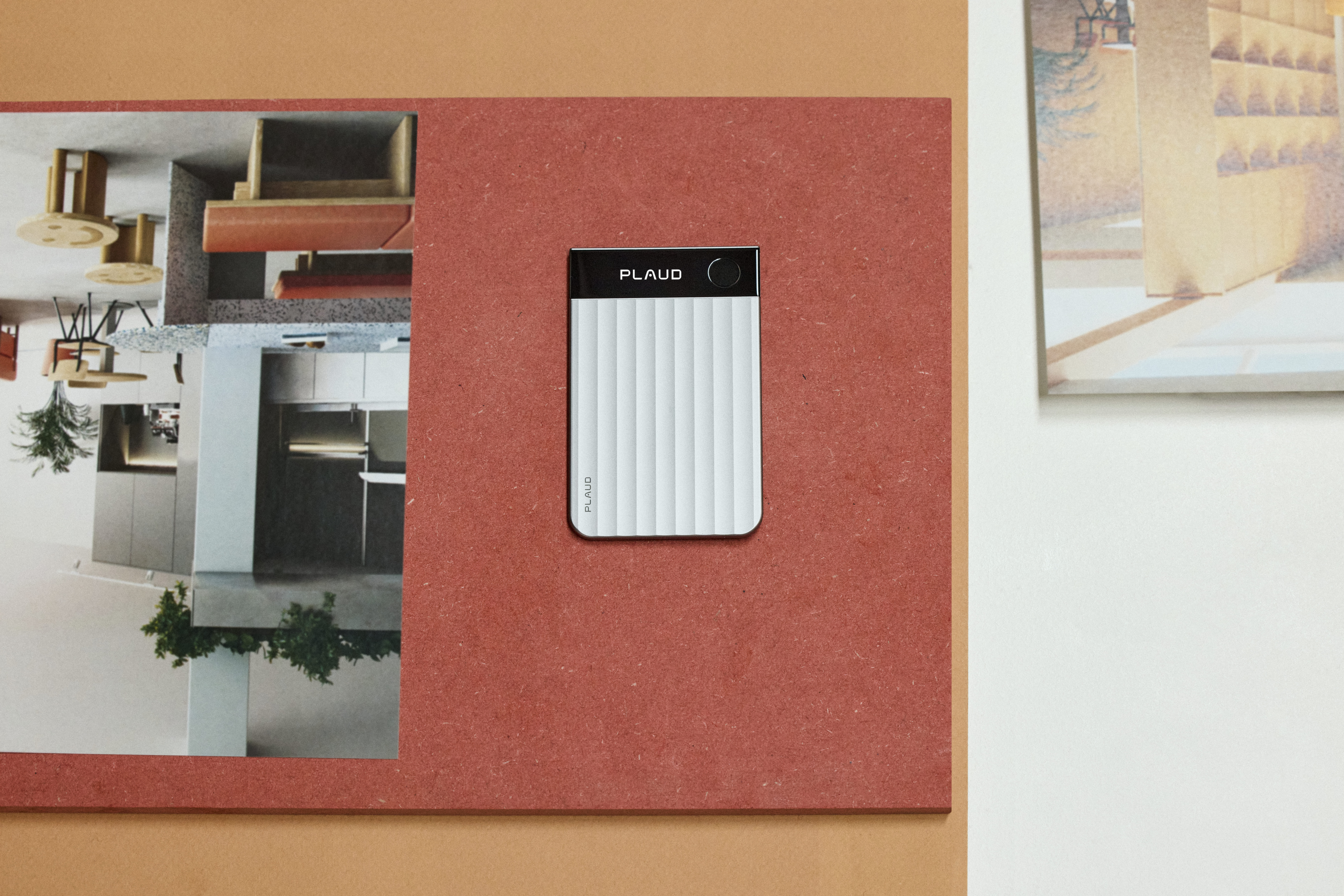
By Srijith KN
I’ve been using the Plaud Note Pro for over three months now, and this is a device that has quietly earned a permanent place in my daily life now. Let me walk you through what it does—and why I say that so?
Well at first I thought this wasn’t going to do much with my life, and by the looks of it Plaud Note Pro looks like a tiny, card-sized gadget—minimal, unobtrusive to carry it around.
With a single press of the top button, it starts recording meetings, classes, interviews, or discussions. Once you end your session, the audio is seamlessly transferred to the Plaud app on your phone, where it’s transformed into structured outputs—summaries, action lists, mind maps, and more.
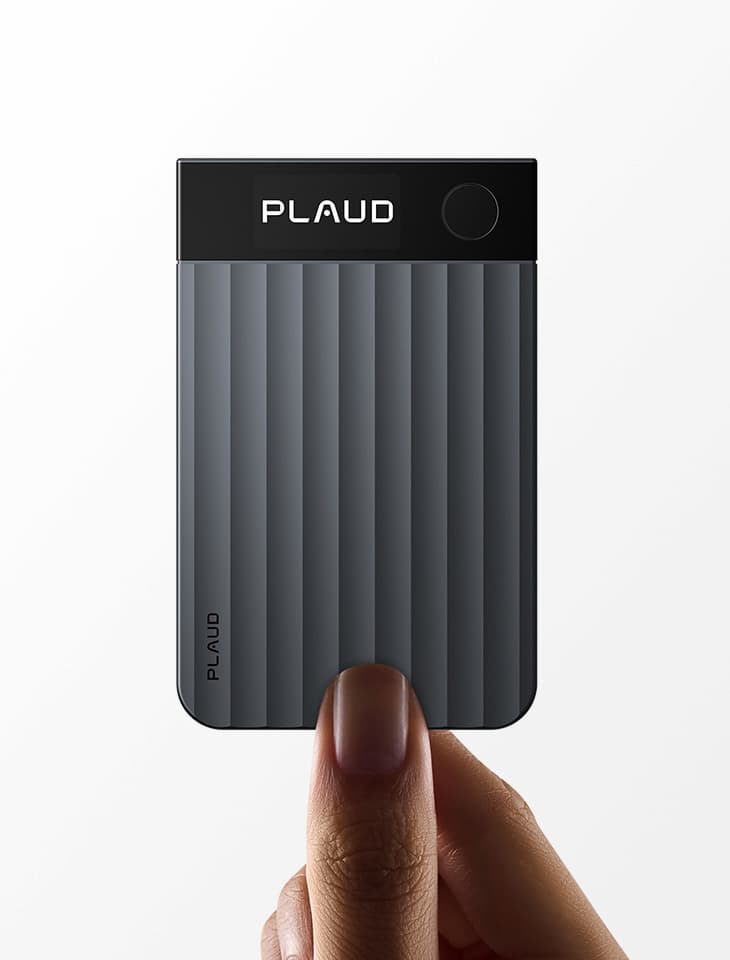
In essence, it’s a capture device that takes care of one part of your work so you can concentrate on the bigger game.
Design-wise, the device feels premium, it features a small display that shows battery level, recording status, and transfer progress—just enough information without distraction. The ripple-textured finish looks elegant and feels solid, paired with a clean, responsive button. It also comes with a magnetic case that snaps securely onto the back of your phone, sitting flush and tight, making it easy to carry around without thinking twice.
Battery life is another standout. On a full charge, the Plaud Note Pro can last up to 60 days, even with frequent, long recording sessions. Charging anxiety simply doesn’t exist here.
Well, my impressions about the device changed once I had an audio captured. I tested this in a busy press conference setting—eight to ten journalists around me, multiple voices, ambient noise—and the recording came out sharp and clear. Thanks to its four-microphone array, it captures voices clearly from up to four to five meters away, isolating speech with precision and keeping voices naturally forward. This directly translates into cleaner transcripts. It supports 120 languages, and yes, I even tested transcription into Malayalam—it worked remarkably well, condensed the entire convo-interview that I had during an automotive racing show that I was into.
Real meetings or interviews are rarely happens in a neat environment, and that’s where I found the Plaud Note Pro working for me. It captures nuances and details I often miss in the moment. As a journalist, that’s invaluable. The app also allows you to add photos during recordings, enriching your notes with context and visuals.
I tested transferring files over 20 minutes long, and the process was smooth and quick. Accessing the recordings on my PC via the browser was equally intuitive—everything is easy to navigate and well laid out.
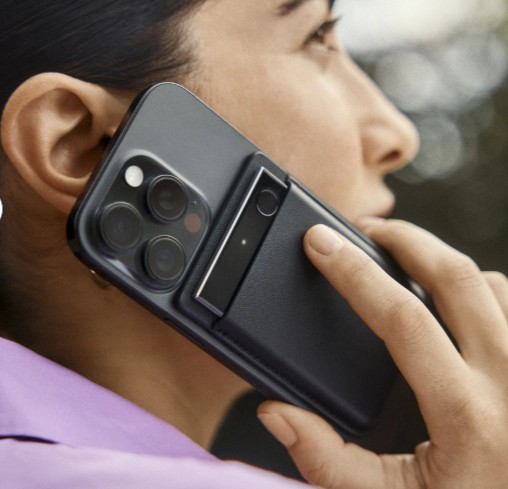
Now to what is inside this tiny recorder. Well, the core of the experience is Plaud Intelligence, the AI engine powering all Plaud note-takers. It dynamically routes tasks across OpenAI, Anthropic, and Google’s latest LLMs to deliver professional-grade results. With over 3,000 templates, AI Suggestions, and features like Ask Plaud, the system turns raw conversations into organized, searchable, and actionable insights. These capabilities are available across the Plaud App (iOS and Android) and Plaud Web.
Privacy is what I happen to see them look at seriously. All data is protected under strict compliance standards, including SOC 2, HIPAA, GDPR, and EN18031, ensuring enterprise-grade security.
What makes the AI experience truly effective is the quality of input. Unlike a phone recorder—where notifications, distractions, and inconsistent mic pickup interfere—the Plaud Note Pro does one job and does it exceptionally well. It records cleanly, consistently, and without interruption, delivering what is easily one of the smoothest recording and transcription experiences I’ve used so far.
I’m genuinely curious to see how Plaud evolves this product further. If this is where they are today, the next version should be very interesting indeed.
“The Plaud Note Pro isn’t just a recorder; it’s a pocket-sized thinking partner that captures the details so you can think bigger, clearer, and faster.”
- Plaud Note Pro is now available for pre-order at https://uae.plaud.ai/pages/plaud-note-pro
- Plaud Note and NotePin are available at https://uae.plaud.ai
-

 Tech News2 years ago
Tech News2 years agoDenodo Bolsters Executive Team by Hiring Christophe Culine as its Chief Revenue Officer
-
News10 years ago
SENDQUICK (TALARIAX) INTRODUCES SQOOPE – THE BREAKTHROUGH IN MOBILE MESSAGING
-

 VAR11 months ago
VAR11 months agoMicrosoft Launches New Surface Copilot+ PCs for Business
-

 Tech Interviews2 years ago
Tech Interviews2 years agoNavigating the Cybersecurity Landscape in Hybrid Work Environments
-

 Tech News8 months ago
Tech News8 months agoNothing Launches flagship Nothing Phone (3) and Headphone (1) in theme with the Iconic Museum of the Future in Dubai
-

 Automotive1 year ago
Automotive1 year agoAGMC Launches the RIDDARA RD6 High Performance Fully Electric 4×4 Pickup
-

 VAR2 years ago
VAR2 years agoSamsung Galaxy Z Fold6 vs Google Pixel 9 Pro Fold: Clash Of The Folding Phenoms
-

 Tech News2 years ago
Tech News2 years agoBrighton College Abu Dhabi and Brighton College Al Ain Donate 954 IT Devices in Support of ‘Donate Your Own Device’ Campaign



















